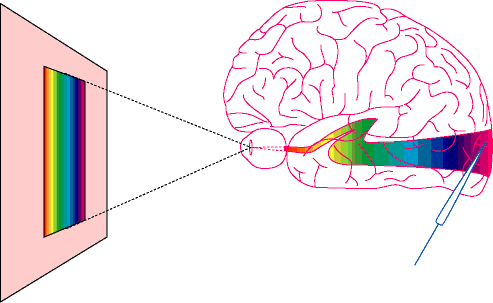
Course Syllabus, Winter 2011
COURSE: Psych 213
GENERAL INFORMATION
In this first class we will read and discuss current literature on the classic mind/body problem. Some questions we will consider are these: What is consciousness and what is matter and how are the two related? How can brains have minds? How can neural activity cause my sensation of red or my feeling of pain? The course will be multidisciplinary, drawing on information from the fields of quantum physics, computer vision, artificial intelligence, cognition, neurophysiology, philosophy, and psychophysics. During the first two weeks I will provide a general introduction to the subject. Students will then choose chapters on the mind/body problem (from the books by Blackmore and Hoffman), present these to the class, and lead discussions. The goal is for all involved to know the state of the field and the open problems by the end of the quarter.
GRADING
Your grade will be based on three measures: (1) Your oral presentations, (2) your participation in discussions, and (3) a paper. Your grade for the oral presentations will be based on how well you master the material you present, how clearly you present its essence, and how penetratingly you critique its strengths and weaknesses. You are, of course, expected to have read whatever material is the subject for discussion in each session, whether or not you are the primary presenter. Come prepared with questions for the discussion leader, critiques of the material, and general comments. To make sure that we all read the material, at the beginning of each class we will put all our names in a hat and draw one out at random. The person whose name is drawn will open the class with a two minute summary of the material for that day. The paper will be 10 or more pages on any aspect of the mind-body problem you wish to explore. You might choose to discuss how research you are conducting bears on some aspect of the mind-body problem. You might propose your own new solution to the problem. You might critique a position discussed in class or that you have read about elsewhere. You might propose new experiments that would give empirical data relevant to the mind-body problem. The paper will count for half of your grade. Your oral presentations will count for 40%, and your participation in discussions 10%.
SCHEDULE OF LECTURES AND READINGS
Lecture. Date: Topic1. Tu 1/4: Overview of
philosophy of mind, Notes, Interface
Theory
2. Th 1/6: Overview
of philosophy of mind, Conscious
Realism Paper
3. Tu 1/11: Overview
of philosophy of mind, Spectrum
Inversion Paper
5. Tu 1/18: Overview of philosophy of mind, Conscious
Realism Slideshow
7. Tu 1/25: Blackmore, 2004, Section 2, PowerPoint
Presentation
8. Th 1/27: Blackmore, 2004, Section 3, PowerPoint
Presentation
10. Th 2/3: Blackmore, 2004, Section 5, PowerPoint
Presentation
11. Tu 2/8: Blackmore, 2004, Section 6, PowerPoint Presentation
12. Th 2/10: Blackmore, 2004, Section 7, PowerPoint Presentation
13. Tu 2/15: Blackmore, 2004, Section 8, PowerPoint
Presentation
14. Th 2/17: Blackmore, 2004, Section 9, PowerPoint
Presentation
16. Th 2/24: Hoffman, 1997, chapter 2
17. Tu 3/1: Hoffman, 1997, chapter 3
18. Th 3/3: Hoffman, 1997, chapter 4
19. Tu 3/8: Hoffman, 1997, chapter 5
20. Th 3/10: Hoffman, 1997, chapter 6,7
--- Th 3/17, 1:30 --3:30 p.m., FINAL
Return to Hoffman's HomePage.